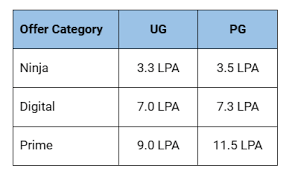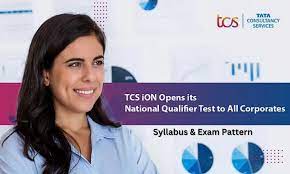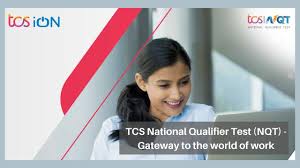If anyone willing to appear for the TCS NQT then he must to take care of somethings.
A Complete Guide to Cracking the TCS NQT IT Exam
If you come from a technical background and are planning to appear for the TCS NQT IT Exam, preparation is key. With the right focus and strategy, you can excel in the test and secure a position in a reputed IT firm. Here's a detailed breakdown of the key sections of the exam and what you need to focus on:
1. Quantitative Aptitude: Sharpen Your Math Skills
The quantitative section tests your ability to solve numerical and logical problems efficiently. Here are the key topics to focus on:
- Mensuration: Understand formulas for areas, volumes, and surface areas of various shapes (circles, squares, cylinders, spheres, etc.). Practice problems involving these concepts.
- Time and Distance: Solve questions on speed, distance, and time relationships. Include problems with trains and boats for variety.
- Ratio and Proportion: Revise ratios, partnerships, and mixtures to handle questions with ease.
- Simple and Compound Interest: Familiarize yourself with formulas for calculating interests and solving investment-related problems.
- Probability: Study the basics of probability, including events, outcomes, and permutations.
- Mean, Median, and Mode: These basic statistical measures often appear in data interpretation questions.
2. Logical Reasoning and Aptitude: Practice Smart Thinking
The aptitude section often includes figure reasoning and other logical puzzles. Here's what to prepare:
- Figure Reasoning: These problems test your ability to identify patterns, sequences, and logical connections between shapes or figures. Practice puzzles involving mirror images, embedded figures, and series completion.
- Puzzles and Sequences: Work on puzzles that challenge your reasoning ability, such as seating arrangements, syllogisms, and sequences.
- Critical Thinking: Enhance your ability to analyze situations and deduce logical conclusions.
Here's an elaborated version for your TechIndia blog about the TCS NQT IT exam:
A Complete Guide to Cracking the TCS NQT IT Exam
If you come from a technical background and are planning to appear for the TCS NQT IT Exam, preparation is key. With the right focus and strategy, you can excel in the test and secure a position in a reputed IT firm. Here's a detailed breakdown of the key sections of the exam and what you need to focus on:
1. Quantitative Aptitude: Sharpen Your Math Skills
The quantitative section tests your ability to solve numerical and logical problems efficiently. Here are the key topics to focus on:
- Mensuration: Understand formulas for areas, volumes, and surface areas of various shapes (circles, squares, cylinders, spheres, etc.). Practice problems involving these concepts.
- Time and Distance: Solve questions on speed, distance, and time relationships. Include problems with trains and boats for variety.
- Ratio and Proportion: Revise ratios, partnerships, and mixtures to handle questions with ease.
- Simple and Compound Interest: Familiarize yourself with formulas for calculating interests and solving investment-related problems.
- Probability: Study the basics of probability, including events, outcomes, and permutations.
- Mean, Median, and Mode: These basic statistical measures often appear in data interpretation questions.
2. Logical Reasoning and Aptitude: Practice Smart Thinking
The aptitude section often includes figure reasoning and other logical puzzles. Here's what to prepare:
- Figure Reasoning: These problems test your ability to identify patterns, sequences, and logical connections between shapes or figures. Practice puzzles involving mirror images, embedded figures, and series completion.
- Puzzles and Sequences: Work on puzzles that challenge your reasoning ability, such as seating arrangements, syllogisms, and sequences.
- Critical Thinking: Enhance your ability to analyze situations and deduce logical conclusions.
3. Coding Skills: Pick Your Preferred Language
For the coding section, you need a good grasp of at least one programming language. Some popular options include:
- C: Learn the basics, such as loops, arrays, and pointers.
- C++: Focus on object-oriented programming concepts like classes and inheritance.
- Python: Ideal for beginners due to its simplicity. Practice with strings, lists, and basic algorithms.
- Java: Pay attention to syntax, exception handling, and basic algorithms.
- Perl: Although less commonly used, Perl is great for text processing and scripting.
Pro Tip: Focus on writing clean and efficient code. Practice solving common coding challenges like:
- String manipulations (reversing, searching, or replacing).
- Basic sorting and searching algorithms (bubble sort, binary search).
- Logic-based problems (fizz-buzz, prime number checks).
Additional Tips to Ace the TCS NQT IT Exam
- Time Management: Divide your preparation time wisely among the different sections. During the exam, keep track of time to avoid rushing at the end.
- Mock Tests: Regularly take mock tests to identify your strengths and weaknesses. Online platforms like HackerRank, CodeChef, and PrepInsta can be valuable resources.
- Practical Coding Practice: Instead of just reading syntax, implement your knowledge by solving real-world problems on competitive coding platforms.
- Keep Updated: TCS sometimes includes scenario-based questions in coding and reasoning. Stay prepared for variations.
Here's an elaborated version for your TechIndia blog about the TCS NQT IT exam:
A Complete Guide to Cracking the TCS NQT IT Exam
If you come from a technical background and are planning to appear for the TCS NQT IT Exam, preparation is key. With the right focus and strategy, you can excel in the test and secure a position in a reputed IT firm. Here's a detailed breakdown of the key sections of the exam and what you need to focus on:
1. Quantitative Aptitude: Sharpen Your Math Skills
The quantitative section tests your ability to solve numerical and logical problems efficiently. Here are the key topics to focus on:
- Mensuration: Understand formulas for areas, volumes, and surface areas of various shapes (circles, squares, cylinders, spheres, etc.). Practice problems involving these concepts.
- Time and Distance: Solve questions on speed, distance, and time relationships. Include problems with trains and boats for variety.
- Ratio and Proportion: Revise ratios, partnerships, and mixtures to handle questions with ease.
- Simple and Compound Interest: Familiarize yourself with formulas for calculating interests and solving investment-related problems.
- Probability: Study the basics of probability, including events, outcomes, and permutations.
- Mean, Median, and Mode: These basic statistical measures often appear in data interpretation questions.
2. Logical Reasoning and Aptitude: Practice Smart Thinking
The aptitude section often includes figure reasoning and other logical puzzles. Here's what to prepare:
- Figure Reasoning: These problems test your ability to identify patterns, sequences, and logical connections between shapes or figures. Practice puzzles involving mirror images, embedded figures, and series completion.
- Puzzles and Sequences: Work on puzzles that challenge your reasoning ability, such as seating arrangements, syllogisms, and sequences.
- Critical Thinking: Enhance your ability to analyze situations and deduce logical conclusions.
3. Coding Skills: Pick Your Preferred Language
For the coding section, you need a good grasp of at least one programming language. Some popular options include:
- C: Learn the basics, such as loops, arrays, and pointers.
- C++: Focus on object-oriented programming concepts like classes and inheritance.
- Python: Ideal for beginners due to its simplicity. Practice with strings, lists, and basic algorithms.
- Java: Pay attention to syntax, exception handling, and basic algorithms.
- Perl: Although less commonly used, Perl is great for text processing and scripting.
Pro Tip: Focus on writing clean and efficient code. Practice solving common coding challenges like:
- String manipulations (reversing, searching, or replacing).
- Basic sorting and searching algorithms (bubble sort, binary search).
- Logic-based problems (fizz-buzz, prime number checks).
Additional Tips to Ace the TCS NQT IT Exam
- Time Management: Divide your preparation time wisely among the different sections. During the exam, keep track of time to avoid rushing at the end.
- Mock Tests: Regularly take mock tests to identify your strengths and weaknesses. Online platforms like HackerRank, CodeChef, and PrepInsta can be valuable resources.
- Practical Coding Practice: Instead of just reading syntax, implement your knowledge by solving real-world problems on competitive coding platforms.
- Keep Updated: TCS sometimes includes scenario-based questions in coding and reasoning. Stay prepared for variations.
Conclusion
Cracking the TCS NQT IT exam requires a blend of theoretical knowledge, practical coding skills, and strategic preparation. By focusing on key areas like mathematics, logical reasoning, and programming, you can maximize your chances of success. Remember, consistency and practice are your best allies in this journey.
Good luck with your preparation, and may you secure a bright future in the IT world!
The TCS NQT is one of the popular entry-level assessments for freshers aspiring to start their careers in IT. Here’s a breakdown of my thoughts based on personal experience and insights
Trending...
Related posts
Essential First Aid Tips for Common Diseases You Should Know Healthy
Delicious Indian Street Foods You Can Now Make at Home Food
10 Genius Travel Hacks That Will Save You Money in 2025 Blog
7 Mind-Blowing Tech Gadgets You Didn't Know You Needed in 2025 TechWorld
At Least 20 Tourists Killed In Pahalgam, 'Were Shot For Not Being Muslim': What We Know So Far About J&K Terror Attack Travel
A warm message to that kind of person , Who thinks different.. Blog
Chennai Express Shooting Locations: You Must Visit At Least Once Travel
Chennai Diaries: Kshitiz Kumar's Sunday Stroll at Marina Beach Travel
How to apply application for PHD Entrance test of Ranchi University 2025 Guides
Aryan and Ananya love story at ranchi (Podcast by kshitiz ) Episode :2 Blog
Aryan an Ananya love story starts at ranchi (coverd by kshitiz) part 1 Blog
TCS NQT (National Qualifier Test) Honest Review by Kshitiz Kumar TechWorld
Kasol is a hamlet in the Kullu district of the Indian state of Himachal Pradesh Travel
Haryana: A Land Steeped in History and Nature’s Bounty Travel
Punjab: A Land Where Every Heart Beats to the Rhythm of Bhangra Travel
Uttarakhand: Where Nature and Spirituality Embrace You Travel
Shimla: The Enchanting Queen of Hills Awaits You! 🌄 Travel
Laravel mostly used codes during project development Coding
Bersache is a brand that sells sports and casual footwear for men and women. Blog
Jharkhand Election Result 2024: जीत के बाद बोले सीएम हेमंत सोरेन, ‘साथ चलकर सोना झारखंड के निर्माण का लें संकल्प’ Blog
Netarhat, often referred to as the "Queen of Chotanagpur" Blog
Battlegrounds Mobile India 3.5 will be the biggest update of the year; here is why TechWorld
We celebrate diwali in much happier frame of mind 😊 LifeStyle
Business Insider Business News India: Latest Business News Today, Share TechWorld
I am watching whole ranchi from the top in the night in diwali Blog
Diwali 2024 highlights: The Deepotsav celebrations featured around 1,100 people performing a special aarti on the banks of the Saryu river. LifeStyle
Western Railway to run unreserved special trains for Bandra-Gorakhpur and Udhna-Chhapra routes Travel
South Indian food is known for the use of generous coconut in their curries Food
CMRL stands for Chennai Metro Rail Limited, a joint venture between the Government of India and the Government of Tamil Nadu that builds and operates the Chennai Metro Travel
You might be interested in
-
Jharkhand Election Result 2024: जीत के बाद बोले सीएम हेमंत सोरेन, ‘साथ चलकर सोना झारखंड के निर्माण का लें संकल्प’
2024-11-24 09:03:24 658 views
Home
-
test1
03 December 55 views -
test1
03 December 46 views -
Just A Game Wkwk
27 October 481 views
Travel
-
I visited a beautiful place at renukoot
26 June 156 views -
Chennai Express Shooting Locations: You Must Visit At Least Once
27 January 11096 views
Guides
-
How to apply application for PHD Entrance test of Ranchi University 2025
08 January 457 views -
Tourist Places in Ranchi
28 November 1894 views -
The Sacred Shores of Puri
28 November 473 views
Food
-
Delicious Indian Street Foods You Can Now Make at Home
06 September 120 views -
आलू पराठा रेसिपी (घर का बना पंजाबी स्टाइल)
17 November 417 views -
Are you black tea lover.????
17 November 499 views
Coding
-
Laravel mostly used codes during project development
24 November 363 views -
How to write email codes without SMTP
24 November 368 views
Review
- No posts available.
Healthy
-
Essential First Aid Tips for Common Diseases You Should Know
06 September 116 views
LifeStyle
-
Visited Ranchi Johna Fall
20 November 458 views -
We celebrate diwali in much happier frame of mind 😊
17 November 586 views
Blog
-
10 Genius Travel Hacks That Will Save You Money in 2025
06 September 144 views -
My best Playlist for all time
03 September 122 views -
T nagar at chennai
22 August 135 views
TechWorld
-
AI Tools That Will Skyrocket Your Productivity
06 September 111 views -
7 Mind-Blowing Tech Gadgets You Didn't Know You Needed in 2025
06 September 173 views -
The Alternate way to run Laravel site
28 January 255 views
Lyrics
-
Hanuman Chalisa
17 November 401 views
Categories
Home
Show all Blog Posts.
Travel
Travelling is the cure for Health and Soul.
Guides
We always need a guide for our lives.
Food
Food is a big part of our life.
Coding
Coding is the Era of New Tech India.
Review
Review is now going to import things for Anything.
Healthy
Health is wealth , we should never ignore it.
LifeStyle
Our lifestyle decides our health.
Blog
Blog is a great source of Knowledge and skills.
TechWorld
We are here to define all tech things for our
Lyrics
Songs





































Comments
Leave a Reply